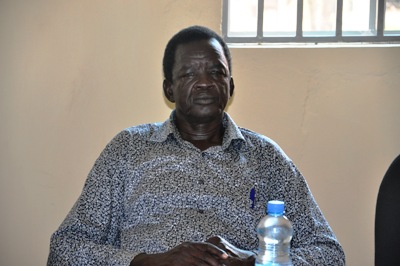Jonglei residents accuse MPs of misusing constituency funds
September 11, 14 (BOR) – Local residents from South Sudan’s Jonglei state have accused their lawmakers of failing to fulfill election promises, a claim the latter denies.

“We have a number of MPs representing us in national assembly, and each of them is entitled to about SSP 650,000 as constituency development fund, each year. This money has never been used properly in all the counties and that is why we have no better health centers, schools and clean water system,” said Mijak, formerly a local government officer.
“When it comes to financial management, people distrust their leaders,” he added.
Manyang Duany, a civil servant, said MPs have fallen short of their constitutional task of improving the lives of their electorates at the grassroots.
“The MPs are not doing their jobs, and that is why we have hostile communities at the grassroots, because the communities are not informed about their government,” said Duany.
He claimed the lawmakers used the recess period to visit families abroad instead of touring their constituencies to brief people on government plans and policies.
Analysts say misappropriation of constituency development fund (CDF) by some lawmakers has created mistrust among their people.
Samuel Pandek Mac, one of the head chiefs in Bor county’s Kolnyang payam (district), said both local and national lawmakers duped them last year to accept the idea of buying cars for their county using CDF.
“We were called for a meeting and there was no prior information about the agenda. At the meeting, it was dominated and dictated by the MPs. They agreed to buy cars. On our part, we wanted either tractors for farming, construction of a girl boarding school, or a better clinic for people far away from Bor town or road. They bought cars instead, which they used themselves,” Pandek told a gathering in Bor.
“Cars, it was not a good idea. It is not economical for MPs, local government administrators to buy cars using our own money. There is no even a good road for these cars to move on,” he added.
But Thon Nyok, a local MP representing Bor town in the Jonglei state legislative assembly, said they had used CDF correctly.
He said 17 boreholes were drilled in the villages, supplying a large population that had no access to clean water all year round.
“CDF is very useful for the people of Bor County, the first year it was received. MPs in the national assembly came, they called us, they called the chiefs and the elders, and we met. We asked the priority, leaders of the communities, like chiefs, were saying we are lacking internal roads and the water. Road was too expensive, so we took water,” Nyok said.
He said the chief’s decision is usually considered when it comes to decision-making.
But another resident of Bor, who spoke on condition of anonymity, doubted if all the money was used as disclosed on 17 boreholes in 2011.
“If each received 650,000 SSP, the total amount would be about 2.5 million SSP. Do you think this was all used on 17 boreholes? I doubt,” he said.
A number of lawmakers are usually uncomfortable asked about the CDF.
The speaker of Jonglei state assembly, Deng Aguer, said the two houses work together when it comes to CDF usage.
“As lawmakers, we have the right to help the community to decide a project that would benefit them and cost effective,” said Aguer.
ACTIVISTS REACT
Community Empowerment for Progress Organisation (CEPO), a South Sudanese civil society entity, said it was fully aware that over 60% of the CDF in Upper Nile state, the Bahr el Ghazal region and some parts of Equatoria state were being misused by lawmakers.
“Most of these parliamentarians that misused the CDF are the ones that comes from the constituencies that its citizens were not properly informed about the CDF. These cases of misused of CDF have justified to us that parliamentarian smile better when his or her constituencies members are ignored and less informed about their roles, duties and responsibilities for holding him or her (parliamentarian) accountable,” CEPO said in a statement to Sudan Tribune.
(ST)
